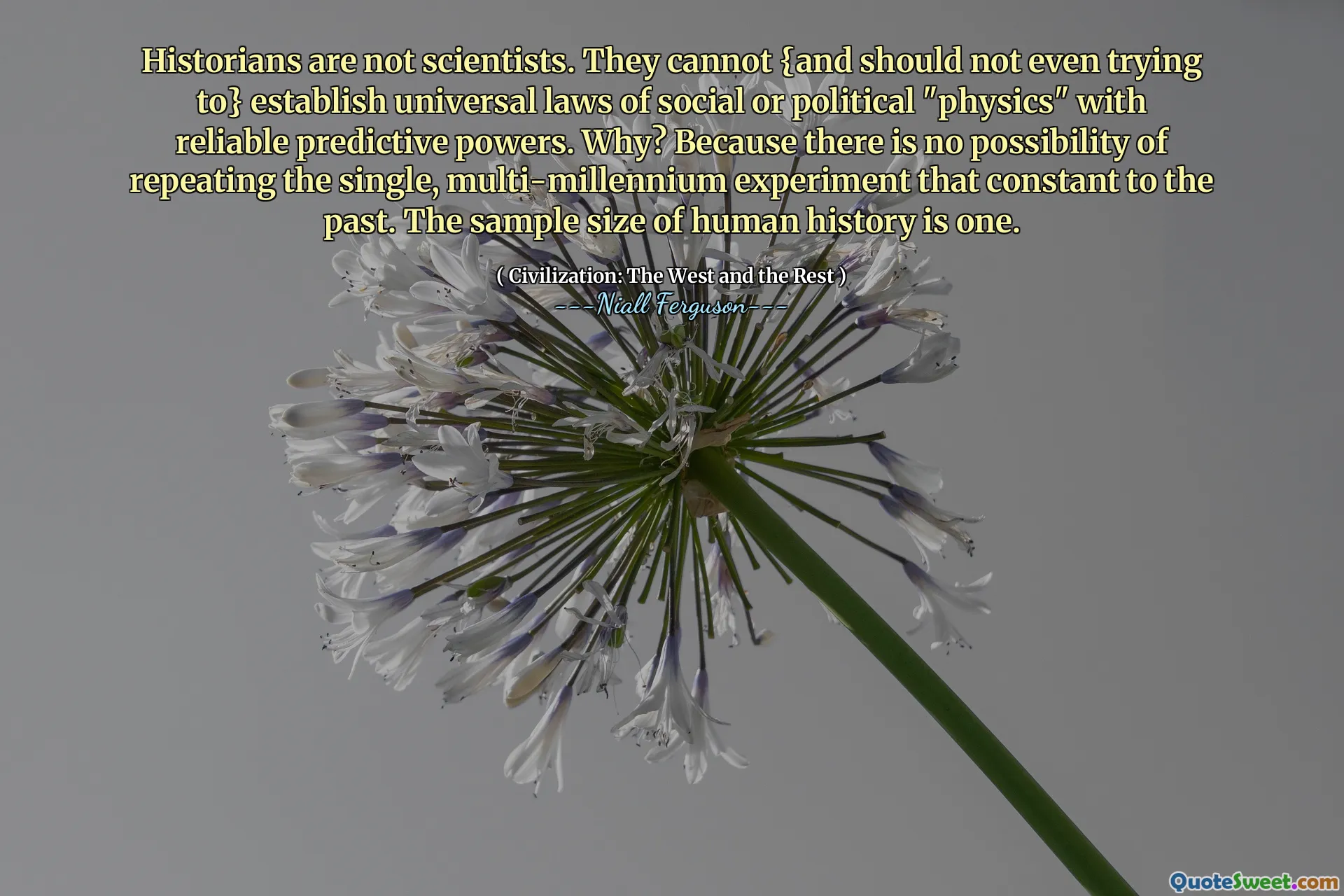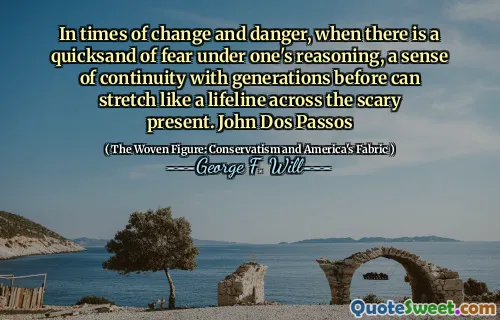
Historians are not scientists. They cannot {and should not even trying to} establish universal laws of social or political "physics" with reliable predictive powers. Why? Because there is no possibility of repeating the single, multi-millennium experiment that constant to the past. The sample size of human history is one.
Niall Ferguson, in his book "Civilization: The West and the Rest," emphasizes the distinction between historians and scientists, particularly in how they approach their fields. Historians cannot create universal laws akin to those in the sciences because human history is unique and non-replicable. Unlike scientific experiments that can be repeated under controlled conditions, history represents an irreplaceable collection of events and experiences that cannot be re-enacted or predicted reliably.
This uniqueness results from the vast complexity of social and political dynamics over millennia, where countless variables interact in ways that defy simplistic categorization or prediction. As a result, historians must acknowledge the singular nature of historical events, where each moment in time presents its own context that cannot be generalized into overarching laws or theories. Thus, the study of history remains a distinctive discipline that requires a different approach than that of scientific inquiry.









